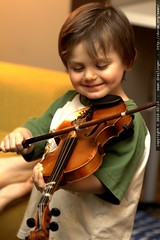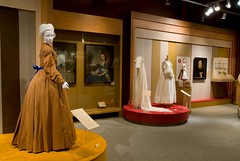Western MA Resources Support Community-Based Learning While Strengthening a Sense of Place
A Diversity of Learning Right On Your Doorstep

Western Mass is home to an incredible array of community-based resources that offer a diversity of embedded learning opportunities. From historical societies to libraries, trails to art galleries, there are numerous opportunities to connect with your community and embrace your sense of place. Read on to see what treasures rest on your doorstep.
Community-based learning is not a product of simply one resource or another. Instead, it is the product of many different local resources, the offerings of which pool and connect in order to create a web of educational connections and opportunities. Families in western Massachusetts are lucky in that this web is especially strong, thanks to the many well-stocked libraries, beautiful trails and outdoor centers, active historical societies, gallery-filled museums, and supportive family centers. Together, these types of resources help to provide opportunities for unique and authentic community-based learning, wherein families are able to explore broad concepts within a local context.
LIBRARIES
With over 1,700 libraries in the Massachusetts Library System, families have access to thousands of book. But our local libraries are not solely a book-based resource. In addition to volumes upon volumes of reading material, libraries offer opportunities to explore and discover new interests through more nontraditional resources like musical instruments, games, and exploration kits. Amherst’s Jones Library, for example, has instruments to lend, including child-size violins, ukeleles, guitars, and even a glockenspiel! The Meekins Library in Williamsburg offers discovery kits that promote hands-on exploration of interesting topics like salmon and local rivers, and important social reformers, civil rights, and human rights leaders in American history. Additionally, many local libraries allow patrons to borrow passes to local museums – helping to make these similarly valuable resources more accessible. And as for community sustainability, libraries are one of the oldest and most common forms of collaborative consumption that we’ve got here in western Mass!
HISTORICAL SOCIETIES
The Noble & Cooley Center for Historic Preservation hosts an annual ice harvest event every February at the Noble and Cooley Center for Historic Preservation (NCCHP) Museum in Granville, MA. Ice was once an important “cash crop” in New England, and you can learn about the history and science behind ice harvesting, experience what it was like to live in farm communities and industrial villages once common throughout New England.
Our communities’ histories, rich with details, are well-chronicled by our historical societies, whose museums, archives, guided tours, and other offerings allow families to explore the past through a local lens. Helping to open families’ eyes to fascinating bits of our history – from famous folks whose roots lie in the Pioneer Valley to industries come and gone- historical societies offer meaningful learning opportunities that add depth to our understanding of the past, and act as interpreters for historic sites like cemeteries and centuries-old neighborhoods. Buckland’s historical society includes, amongst many treasures of days gone by, paintings by artist Robert Strong Woodward, from which families can learn about art techniques and local ties to American art history. Both the Plainfield and Worthington historical societies offer not only in-person explorations of local artifacts, but extensive online collections of photographs, maps, town records, and other historical documents that families can use as resources for exploring the settlement and development of these two towns. In Hatfield, the historical society runs two museums – one filled with local history in general, and one focused on agricultural history and local farming. Families can learn not only about the history of Hatfield, but can explore the technological changes that have affected life for agrarian communities throughout the last few centuries.
PARKS & TRAILS
Acting as a sort of scientific historical society, local trail systems and outdoor centers give families opportunities to explore local surroundings and to learn about natural history. Year-round, families can take advantage of interpretive hikes that teach about local flora and fauna, stargazing outdoors (with telescopes!) that teaches star identification and location-specific star studies, and service learning events where families engage with the local landscape to identify species populations or clean up human or storm-related debris. In addition to the myriad opportunities to directly engage with the local landscape, there are plenty of similarly exciting and educational opportunities centered around acquiring new physical skills.
Many parks and trails are also accessible all year round! In the winter , warmly dressed families can enjoy ice skating amongst a snowy landscape at the DAR State Forest in Goshen. Once snow has fallen, The Trustees of Reservations’ Notchview offers scenic cross country ski trails, in addition to opportunities for new skiers to learn how to navigate on Nordic skis and trails. Northfield Mountain also offers beautiful trails, and is open to both cross country skiing and snowshoeing – and there’s equipment available to rent, too! Northfield Mountain’s trail system is situated on property that is part of the Northfield Mountain hydroelectric plant – meaning that a visit to the site can inspire community-based learning about hydropower during another season.
MUSEUMS

Do you ever wonder what clothing looked like in the past, what materials it was made out of it, or how it was made? Historic Deerfield’s Helen Geier Flynt Textile Collection is home to roughly 8,000 objects including clothing, accessories, and domestic textiles.
For indoor community-based learning experiences, local museums offer exciting and engaging exhibits that teach visitors about art, local history, natural science, and modern innovations. Families can plan museum visits based on preexisting interests, or use the well-designed exhibits to spark new interests and impromptu investigations into unfamiliar topics. The Eric Carle Museum of Picture Book Arts in Amherst presents art to children and families in a very familiar and accessible way: through the work of children’s book illustrators! Featuring a permanent collection of murals, sculptures, and illustrations, the museum houses rotating exhibits from artists and illustrators both world renowned and just beginning. Also in Amherst, the Beneski Museum of Natural History is filled with fossils, skeletons, and other artifacts left by creatures of long ago. Visitors can learn about the natural history of many parts of the world, or keep learning local and explore an exhibit that shows Amherst approximately 190 million years ago. Other local museums offer opportunities for learning about slightly more current local history, such as the development of industry during the past century and the success of local businesses, which can be explored at the Springfield Museums’ Lyman and Merrie Wood Museum of History. Exhibits become living history at Historic Deerfield, where visitors step back in time to experience a Pioneer Valley community of the 18th century. Modern-minded families can visit year another local museum to learn about modern innovations in science, technology, and engineering. Pittfield-based Berkshire Museum’s new Spark!Lab exhibit offers a hands-on educational experience that inspires children to innovate and use creativity to problem solve.
FAMILY CENTERS
In addition to opportunities to engage in community-based learning and resources for doing so, it’s important to have a strong and well-connected community to begin with. Locally, family centers help to bring families with preK children together – offering spaces for creative-free play and intergenerational relationship development. As children learn, play, and develop social skills together, parents, grandparents, and caregivers can connect and build relationships with one another as well. And in addition to playtime, some family centers offer workshops for parents, family concerts and dance parties, community meals, and other events open to not only families with young children, but all those wishing to learn about parenting or participate in a meaningful community event.
By taking advantage of only some of these many, many opportunities and resources for community-based learning, families can connect with the local landscape, learn about their community’s past, and connect with others in order to allow children to learn, explore, and develop a strong sense of place. Not only will children learn about the place where they live, but in participating in community-based education, they’ll learn to see themselves as a part of the place that they know and understand. And in utilizing community-based learning opportunities, they’ll also be able to put their sense of place into perspective within a national and perhaps global context.
To learn more about the possibilities of community-based education, check out the TEDx Talk, Supporting Education Through Community Engagement
To discover community-based education events happening in Western MA, subscribe to the Hilltown Families eNewsletter for a heads-up every Thursday delivered to your email inbox for free.
[Photo credit: (cc) sean dreilinger]
 Hilltown Families
Hilltown Families 




























